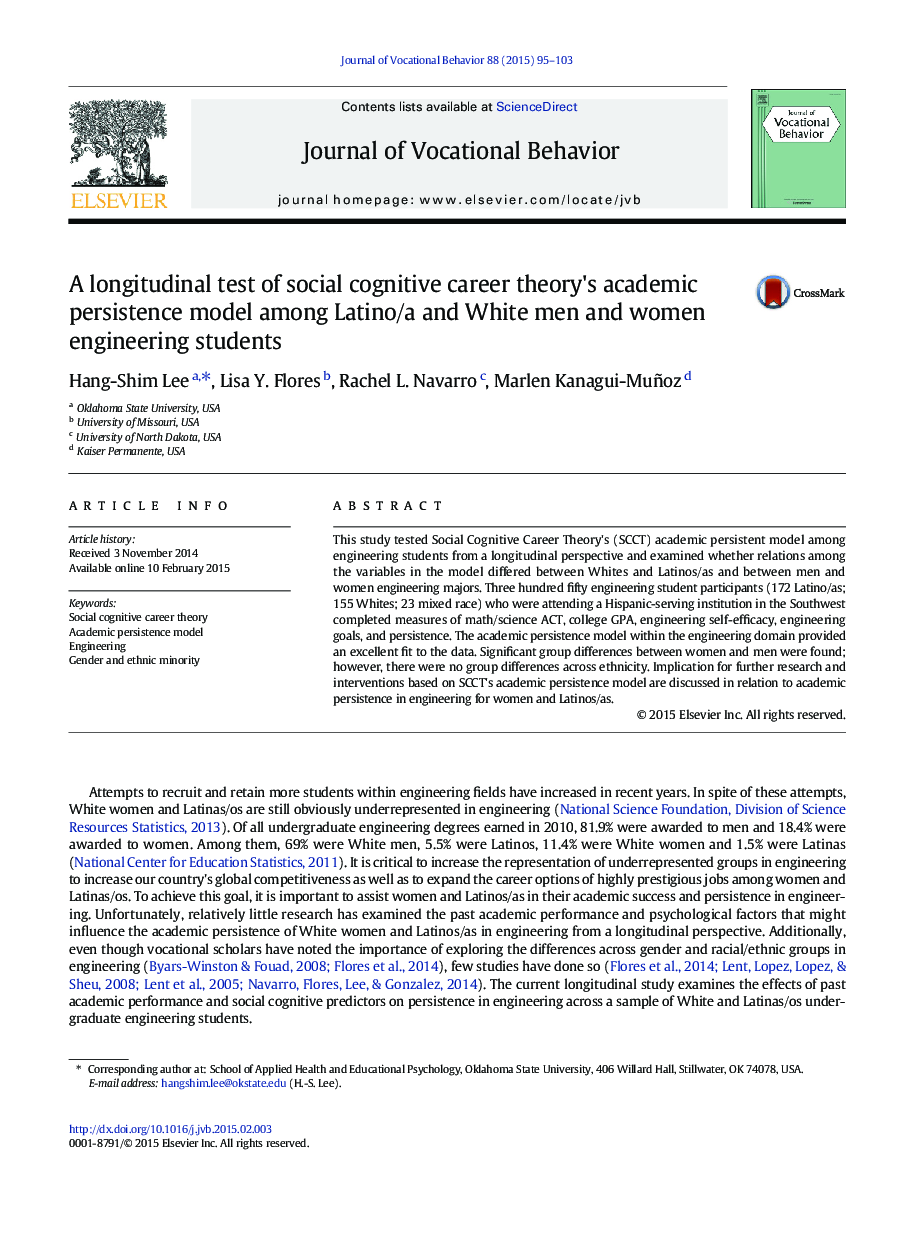| کد مقاله | کد نشریه | سال انتشار | مقاله انگلیسی | نسخه تمام متن |
|---|---|---|---|---|
| 886762 | 1471811 | 2015 | 9 صفحه PDF | دانلود رایگان |
• Social cognitive career theory's academic persistence model provided an excellent fit to the data.
• Math/Science ACT and self-efficacy had indirect effect on actual persistence.
• Engineering goals were significant predictors of persistence.
• There were no significant differences between Whites and Latinos/as.
• Significant group differences between women and men were found.
This study tested Social Cognitive Career Theory's (SCCT) academic persistent model among engineering students from a longitudinal perspective and examined whether relations among the variables in the model differed between Whites and Latinos/as and between men and women engineering majors. Three hundred fifty engineering student participants (172 Latino/as; 155 Whites; 23 mixed race) who were attending a Hispanic-serving institution in the Southwest completed measures of math/science ACT, college GPA, engineering self-efficacy, engineering goals, and persistence. The academic persistence model within the engineering domain provided an excellent fit to the data. Significant group differences between women and men were found; however, there were no group differences across ethnicity. Implication for further research and interventions based on SCCT's academic persistence model are discussed in relation to academic persistence in engineering for women and Latinos/as.
Journal: Journal of Vocational Behavior - Volume 88, June 2015, Pages 95–103
